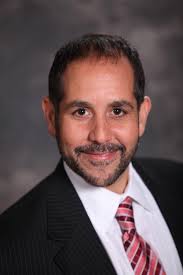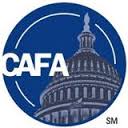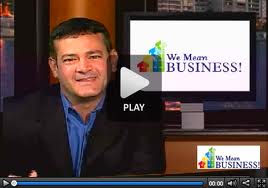You’re Interviewing Them, Too…
I’ve conducted countless job interviews over the years and I’m still amazed at how many mistakes are made by most job applicants.
Put yourself in the shoes of your interviewer for just a moment. Let’s set the stage:
As someone conducting a job search, although you’d love for the process to be predictable and efficient, most applicants do a great job of filling the process with unexpectedness, a lack of integrity and even the absence of professionalism. For example, people are sending you generic cover letters and resumes with typos, bad grammar and inconsistent tense, taking too long to reply to e-mails, no-showing or showing up late for interviews, arriving inappropriately dressed … and the list goes on.
The list of glaring mistakes is so long, in fact, that we’ll just have to stick to what I find to be the top 3. Let’s count them down and discover how to follow a few avoidance tactics:
#3. Treating the receptionist as nothing more than a gatekeeper
Oftentimes, you’ll have interactions with a receptionist via phone and/or in person. More than a gatekeeper, this person often serves as adviser. Whether the decision maker asks for the receptionist’s first impression of you (the applicant) or not, that receptionist will likely volunteer those thoughts and feelings … without hesitation, and without holding anything back. Just as a person shows their true colors on a first date by the way they treat their server in a restaurant, a job applicant does the same based on their interaction with the receptionist.
Get the receptionist’s name and use it. You’ll impress that person if you arrive remembering their name from a prior phone conversation. “Oh, are you Judy? Hi Judy, I’m Sam Kline. I certainly wouldn’t expect you to remember, but we spoke very briefly on the phone last week. It’s nice to put a face with the name.” These days, there is no shortage of job applicants. This is one small but effective way to stand out among the others. That receptionist is a fellow human being and one who likely has influence into whether you make the cut. Chances are pretty good that your favorable first impression will eventually make its way to the decision maker. I know of at least two companies that even make it common practice to get the receptionist’s feedback and first impressions of an applicant as soon as they walk out the door.
#2. Treating the first interviewer as nothing more than another gatekeeper
It’s certainly not intentional, but so many job applicants are missing an opportunity to make a great impression by simply ignoring a few key things. Your interviewer is gathering “evidence” all throughout the interview process, both consciously and unconsciously. In large part, this evidence gathering goes to support their first impression of you, so… Call or e-mail to confirm your meeting time (and place), show up early, arrive in a clean vehicle, and pay special attention to make your hair and shoes presentable*.
Eliminate distractions: another big mistake applicants make is putting something between themselves and the interviewer that may stand in the way of rapport building. These distractions include excessive perfume/cologne, excessive (or even noisy) jewelry, chewing gum/mints, lack of eye contact, inattentiveness, passive listening, or showing up late.
#1. “So, did you have any questions for me?”
“…Nope, I think you’ve already answered them all.” Big mistake. HUGE! Perhaps the biggest mistake you could make during the interview process is having nothing to ask your interviewer. Having and asking prepared questions serves to demonstrate many things: 1) you’re not desperately interviewing all around town just waiting for that one lucky break; 2) you’ve spent time researching their company; 3) you are organized and intelligent; 4) you’ve planned ahead; 5) you possess leadership qualities; 6) you view this as a career … not just another job.
For a list of carefully crafted questions to ask your interviewer, CLICK HERE.
* According to Psychology Today Magazine, the first thing people notice about you is your hair and shoes.



















Great, non-obvious, tips. I think your questions list is equally important.
I’m glad you found this useful, Masoud. Thanks for commenting.
This is great advice, Steve. I coach college seniors on interviewing and always mention these 3.
Art, that’s the kind of coaching that’s remembered and appreciated for a lifetime. Thanks for sharing.
These is really good advice, Steve. It’s those simple yet important points that can make or break a potential relationship. Thanks for the tip about the shoes, too. Some of us (e.g., me) don’t pay enough attention to that one!
Amen to that, Lowell (the former)
Just read this great interviewing tip from Cameron Herold:
“The best way to bring out their true nature is to ask them this magical 5-word question:
“So what’s your favorite movie?”
Wait! What?
How does it even matter?
Should I not hire someone who says their favorite movie is GIGLI?
No.
I’m not suggesting you hire people based on their taste. NO.
Since most people come to interviews prepared for generic questions, they get shocked when you throw this one.
No interviewer has ever asked them such a question before.
You’ve interrupted their pattern.
They are uncomfortable.
You have pulled them off-script.
Whatever happens from now is their true self talking.
Take notes – the interview has just begun.
But…
Do not ask this question right off the bat.
There won’t be much of a pattern interrupt happening at this point.
Ask 2-3 generic questions they have most likely prepared for…they’d start feeling like they are killing it.
And then drop this bomb question.
Take notes.
How did they react when you asked this question?
Did they get defensive?
Did they stammer & circle around?
Or did they stay calm & explain the situation?
You want composed & level-headed employees that have the capability to deal with uncomfortable situations.
They should be able to function well even if their pattern is interrupted.”